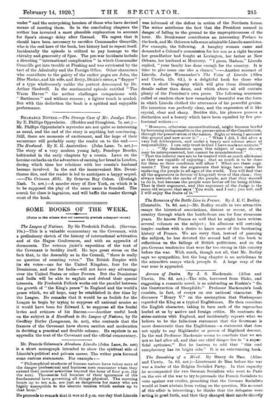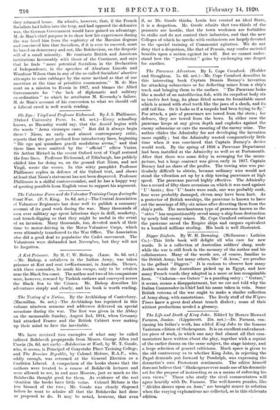. The Remaking of a Mind. By Henry de Man.
(Allen and Unwin. 7s. 6d. net.)—Lieutenant de Man before the war was a leader of the Belgian Socialist Party. In that capacity he accompanied the two German Socialists who went to Paris on the eve of the war to try to persuade the French Socialists to vote against war credits, promising that the German Socialists would at least abstain from voting on the question. His account of this affair is interesting ; he thinks that the delegates were acting in good faith, and that they changed their minds directly
they returned home. He admits, however, that, if the French Socialists had fallen into the trap, and had opposed the defensive war, the German Government would have gained an advantage. M. de Man's chief purpose is to show how his experiences during the war freed him from the sophistry of the Marxian dogmas and convinced him that Socialism, if it is ever to succeed, must be based on democracy and not, like Bolshevism, on the despotic will of a small minority. He contrasts British and American institutions favourably with those of the Continent, and says that he finds " more potential Socialism in the Declaration of Independence, in the speeches of Abraham Lincoln and Woodrow Wilson than in any of the so-called Socialists' abortive attempts to raise cabbages by the same method as that of our ancestors at the time of primitive communism." M. de Man went on a mission to Russia in 1917, and • blames the Allied Governments for " the lack of diplomatic and military co-ordination " to which he attributes M. Kerensky's failure. M. de Man's account of his conversion to what we should call a Liberal creed is well worth reading.



































 Previous page
Previous page